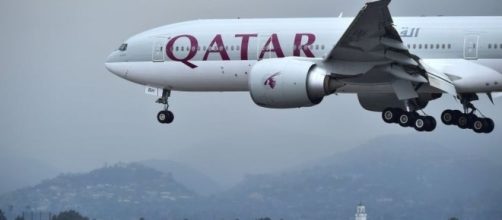The Gulf crisis is escalating as Egypt closed its airspace to Qatari planes, with Bahrain and Saudi Arabia following suit on Tuesday. Egypt said it was halting flights to Qatar “until further notice”. Qatar is being frozen out by its Middle Eastern neighbours which include Saudi Arabia, the United Arab Emirates, Bahrain, Yemen and the Maldives who have stated that they are indefinitely severing ties with Qatar, according to CNN.
Severe travel disruption will hit Doha airport and airlines disrupted include Etihad Airways, Emirates and Qatar Airways.
If Qatar cannot use the airspace above Egypt, Bahrain, Saudi Arabia and the UAE, this could mean increased ticket prices as flights to Africa and North America will have to make long detours around these areas. All transport links by sea, land and air to Qatar have been shut by the UAE, Bahrain and Saudi Arabia. Qatari diplomats were expelled from the UAE and Egypt.
Sheikh Mohammed Bin Abdulrahman al-Thani, the Foreign Minister, told Al Jazeera that Qatar would "still have access to the world through international sea lanes and international airspace". The Foreign Minister refused to speculate on the agenda behind the ban. "Regarding the reasons for this escalation, honestly, we don't know if there were real reasons for this crisis".
According to an AP report, around 15 Qatar Airways flights had travelled via Somalia's airspace on Monday, much higher than usual.
Qatar accused of financing terrorism
The reasons for the severing of ties with Qatar by the other Middle Eastern countries has been simmering for some time. Qatar is accused of supporting terrorism in the Gulf Region. Wealthy Qataris are believed to have made large donations to fundamentalist groups with claims that the government has given weapons and money to Syrian jihadists.
Qatar is a small country which has the highest per capita income in the world due to its gas and oil deposits. Fears over food shortages grew as residents started to stockpile produce. AFP news agency said there were long queues at shops.
Social media images circulated of empty supermarket shelves, with reports of shops running out of water.
Dependence on imports
Qatar imports practically all of its food, receiving 99% of its food from outside, according to Theodore Karasik, an adviser with Gulf State Analytics. Other countries offered their help in the growing crisis. Turkey's President Recep Tayyip Erdogan is said to be "actively involved" in trying to untangle the diplomatic row between Qatar and its neighbours.
Iran's Foreign Ministry spokesman, Bahram Ghasemi stated on the ministry's website that a "clear and explicit dialogue" was needed. A resolution to the dispute was needed as it threatened the interests of everyone in the Gulf region.


